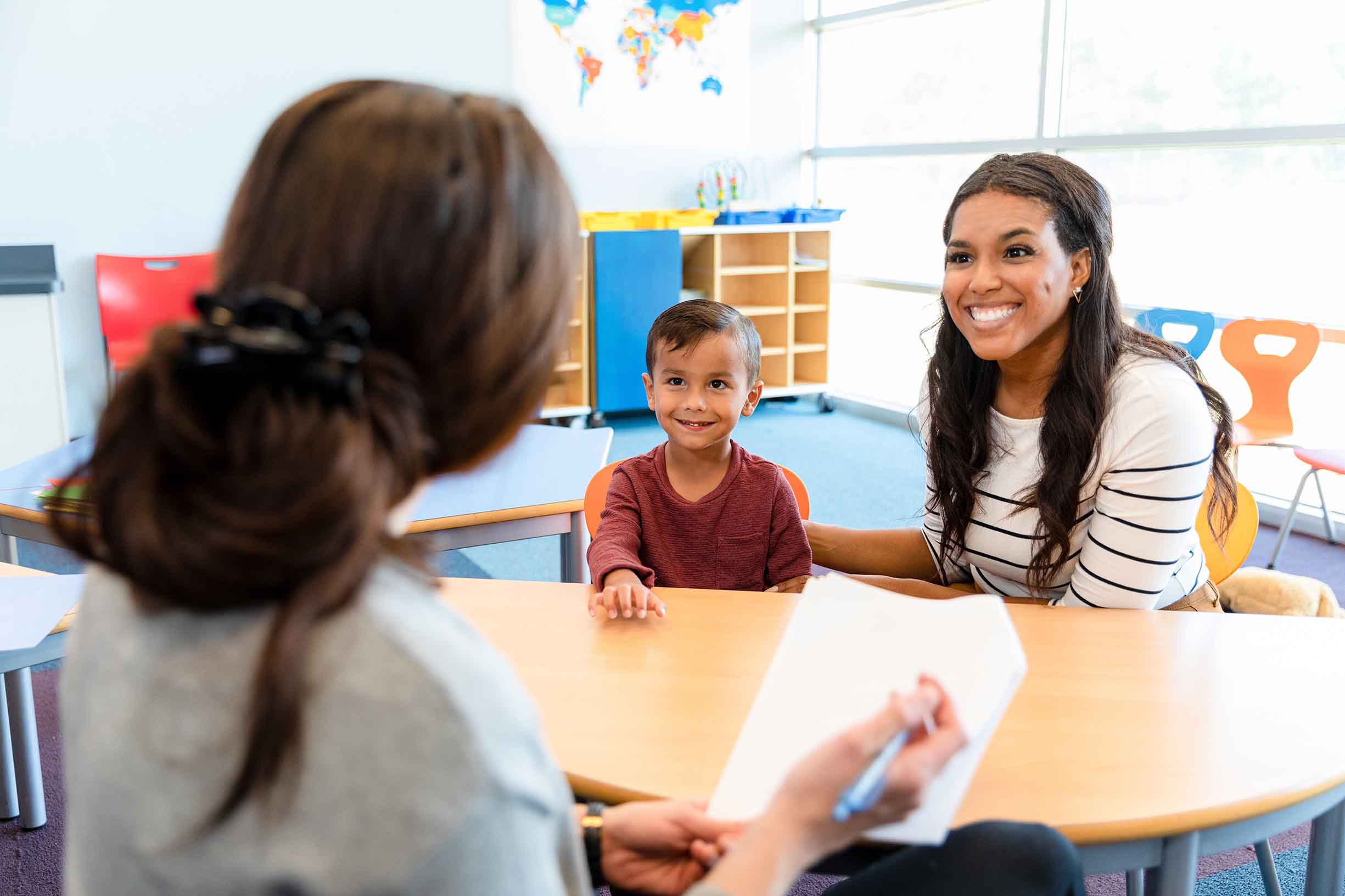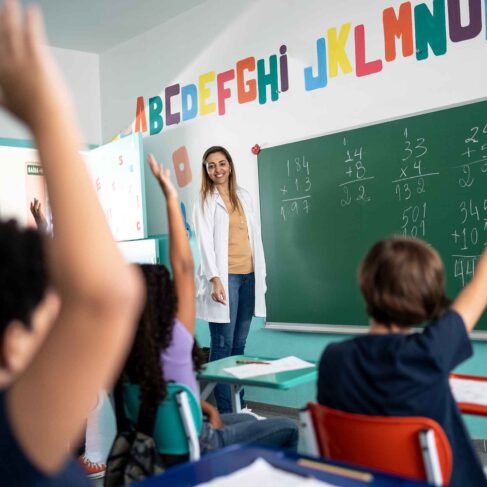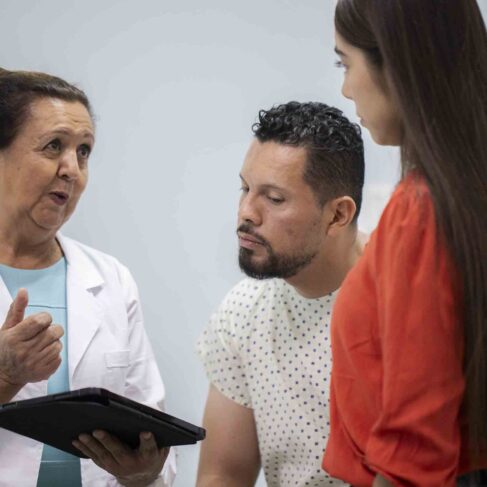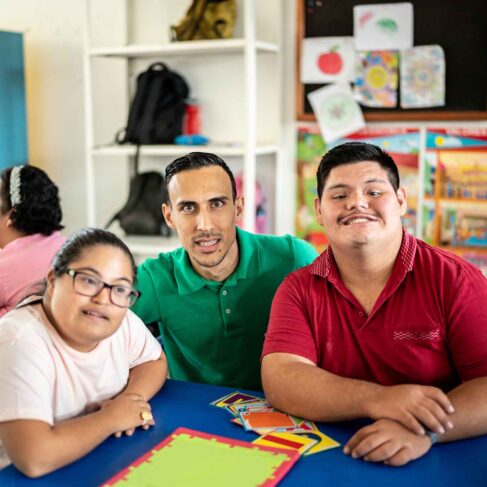Stay connected
Be the first to know about new programs, upcoming events, or other exciting opportunities happening at the University of Georgia by joining our mailing list.
About this course
What you’ll learn
The Professional Translator in Education (Spanish) Certificate Program provides a comprehensive overview of the field of translation as it applies to the American school system. This course teaches educational terminology, translation methods, effective online translation tools, cultural competence, and translation skills with special populations and situations. This synchronous online course, through its learning content, which includes videos and lesson presentations, discussions, written assignments, and bi-weekly online meetings, provides the foundation and principles required for a bilingual individual to serve as a professional translator in education. You will learn:
- The special skills needed to translate documents effectively and accurately
- Translation methods
- Translating for diverse audiences
- Regional and cultural differences
- Using online translation tools
- Common pitfalls in educational translations
- Succeeding as a professional translator
Learning objectives
Module 1: Introduction to Translation in Education and Pre-Test
- Understand the special skills needed to effectively and accurately translate documents from one language to another in the educational setting.
- Describe the types of audiences and documents that translators in education may encounter in their daily work.
- Identify some of the resources available to support the translator in education to produce quality translations.
Module 2: Translation Methods
- Ensure the fidelity to the source using translation methods such as borrowing, calque, and equivalence.
- Recognize the steps necessary to prepare a document for translation.
- Discuss and define the appropriate processes to produce a final translated document.
Module 3: Translating for Specific Audiences
- Recognize the diverse audiences that benefit from translated documents in an education setting.
- Determine the appropriate register level and translation formats to reach diverse audiences.
- Increase knowledge of general and special education terminology and methods to produce accurate documents that are understandable to diverse audiences.
Module 4: Regional and Cultural Differences
- Identify the regional and cultural differences that may affect Spanish translations in the education setting.
- Describe common words that may be translated differently depending on the country where Spanish is spoken.
- Recognize the importance of gender in language to ensure that translations are inclusive.
Module 5: Effective Use of Online Translation Tools
- Describe a variety of online tools available for translators.
- Examine the advantages and disadvantages of using online tools for translations in education.
- Identify the points of collaboration between humans and machines to produce accurate translations in education.
Module 6: Common Pitfalls in Educational Translations
- Identify words that appear to be similar in English and Spanish but have different meanings.
- Examine how context becomes important when selecting the appropriate vocabulary to produce accurate translations
Module 7: Succeeding as a Professional Translator
- Identify specific paths to becoming a professional freelance translator in education.
- Recognize the importance of continuing education and the benefits of specialization.
Who should attend?
Individuals who are bilingual (English and Spanish) and fall into the following categories:
- Teachers, staff, administrators of public, private or charter schools, and other education institutions
- Individuals who work with teachers, staff and administrators of public, private or charter schools and other institutions
- Interpreters and translators currently employed in educational institutions
- Independent interpreters
- Interpreters with other interpreting credentials, such as those who have completed the Spanish/English Medical Interpreter Certificate Program or the Spanish/English Legal Interpreter Certificate Program.
- Individuals seeking employment in educational organizations
- Individuals seeking their first professional interpreting certificate
Continuing Education Information
Successful graduates will earn a Digital Certificate of Program Completion and 3.0 CEUs (Opens in a new window) from the University of Georgia.
Requirements & policies
Schedule
Mandatory live online classroom sessions with the instructor to be held from 6:30 p.m. to 8:30 p.m. ET on the following Mondays:
- September 21
- October 5
- October 19
- November 2
The instructor will be available for office hours on September 28, October 12 and 26.
Cancellation or refund
We will issue a refund, minus a $75 processing fee, for cancellations made at least seven (7) days before the course start date. No refunds for cancellations after that date. All cancellation and refund requests must be submitted via the “drop request” feature in the participant (registration) portal.
Prerequisites
There are no prerequisite courses; however, students must be able to read and write fluently in both English and Spanish to complete the certificate requirements. Students must have essential experience transferring source text into another language, reflecting the appropriate style, tone, and syntax. ATA certification is not required.
Attendance
To complete the course, students must attend all live online class sessions.
People
Instructor
Ana Soler, the course author and instructor, is the Chairperson of the National Association of Educational Translators and Interpreters of Spoken Languages (NAETISL) and Founder of SeSo, Inc., a source of qualified and trained interpreters and multicultural family engagement workshops. She completed her bachelor’s degree in Social Work at Georgia State University, her master’s degree in Public Health at Emory University, and is a Ph.D. in Special Education student at the University of Georgia. For over a decade, Ana worked with the largest school district in Georgia as the Language Services and Parent Outreach Coordinator, developing, implementing, and evaluating professional development opportunities for multilingual personnel and supporting schools with interpreter/translator quality assurance.
While working as a Multicultural Program Coordinator for Children’s Healthcare of Atlanta, Ana assisted with the creation of the hospital’s interpretation and translation department. She also coordinated interpreter training for bilingual staff, oversaw cultural competency training for physicians and staff, and provided medical translation quality assurance and guidelines. Ana has authored interpreter training curricula nationally, including the Intercultural Parent and Youth Leadership Program, the Interpretation Academy for Bilingual High School Students, the Arkansas Interpreter in Education Credential Training, a 40-hour course for medical interpreters, and other online courses for the University of Georgia, including the Professional Interpreter in Education Certificate course and the Professional Interpreter in Special Education Certificate course. She remains an active medical and educational interpreter and translator.

Prices, course details, dates, and times are subject to change.
Contact us + FAQs
FAQs
View the most frequent questions asked by our learners
Financial and Military Assistance
Find out which programs are eligible for assistance
Accommodations
View our accommodation policy





